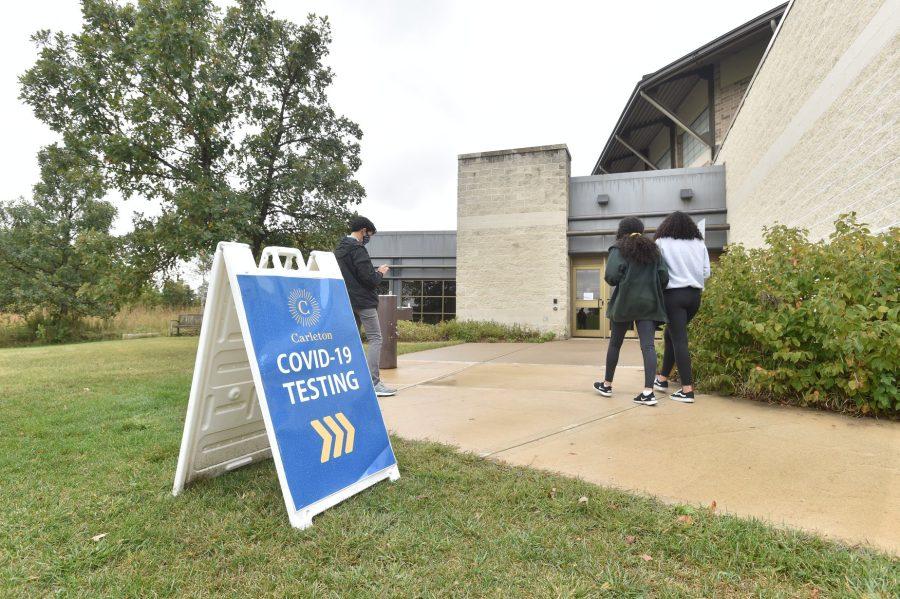The Dean of Students Office announced on October 1 that a $150 COVID-19 test fee will be imposed on students leaving campus urgently and later returning. Weekly random tests have otherwise been free for students. This change is not a result of the college’s inability to fund tests; rather, it is, at its core, a deterrent for students considering traveling, in order to protect the health and safety of the larger campus, according to Associate Dean of Students Cathy Carlson.
Carlson said that students could not receive financial aid for the test, however, Dean of Students Carolyn Livingston emphasized in a meeting with the CSA that there will be exceptions made at the discretion of the Dean of Students Office, according to Carleton Student Association Vice President Brittany Dominguez. When CSA members specifically asked about aid for family emergencies such as funerals, Dean Livingston assured them that students would likely be able to receive testing aid.
Many students have expressed concerns about the new policy, citing the unequal effect it will have on low-income students in comparison to those who can afford the cost of the test. Maya Rogers ’22 said, “As a low-income student and a Public Health Association member, I know that this fee is not feasible for many students on campus. I think it does help deter the middle to higher income students partially, possibly making them reconsider why they want to go off campus. But in the end the people who can pay the fee will be able to go off campus, return, and do so while people who cannot pay the fee may not go off campus at all.
Cas Roland ’22 echoed this concern, calling it “odd and unnecessarily punitive.” They said that “every Minnesota-based health insurance plan, both private and public, is required to cover the cost of a coronavirus test, and there are several community testing sites around the state that will give those without insurance a free test, so there are ways that one could obtain a free test off campus.”
Roland continued, “Carleton runs about 300 COVID tests each week, and does not make students foot the bill for those tests, so I can’t imagine doing 301 tests will break Carleton’s financial system.”
They argue that if Carleton has the budget and, in worst-case scenarios, students could get tests free elsewhere in the state, then forcing students to pay $150 for their test is less about keeping the student body safe and more about punishing those who leave. “Personal emergencies are called emergencies for a reason. In many cases they do not really have the option to stay,” they said.
“If the $150 was the only barrier to immediately returning to on-campus life, there are certainly some students that would just visualize $150 as being the cost to go off campus—it’s not a fine or a penalty, but rather a fee they have to pay to do what they want, even if there’s no emergency present,” Roland noted.
There are, however, additional consequences for students who take an emergency overnight trip off campus. Students are required to alert the college before their departure and must reside in a designated space for 10 days upon their return, according to Carleton’s COVID-19 FAQ webpage. During this time, the student must take all meals to-go and cannot attend in-person classes or use public spaces.
Carleton’s Public Health Association (PHA) board also saw the fee as an undue burden on low-income students. They said, “We would like to see a simple petition process in which students can apply to have the fee reduced or covered based on the reason for traveling and financial circumstances.”
Few alternative funding options exist as, according to Dominguez, “In terms of CSA, we unfortunately cannot provide aid because the CSA activity fee is taken from all students to fund campus-wide events, organizations and community building initiatives. We generally cannot use it to fund personal expenses such as medical bills or testing.”
However, there are emergency options available. “I would highly encourage students to bring specific predicaments regarding testing aid to the Dean of Students Office and Dean Livingston as well as to apply for the Dean of Students Emergency Fund,” said Dominguez.












